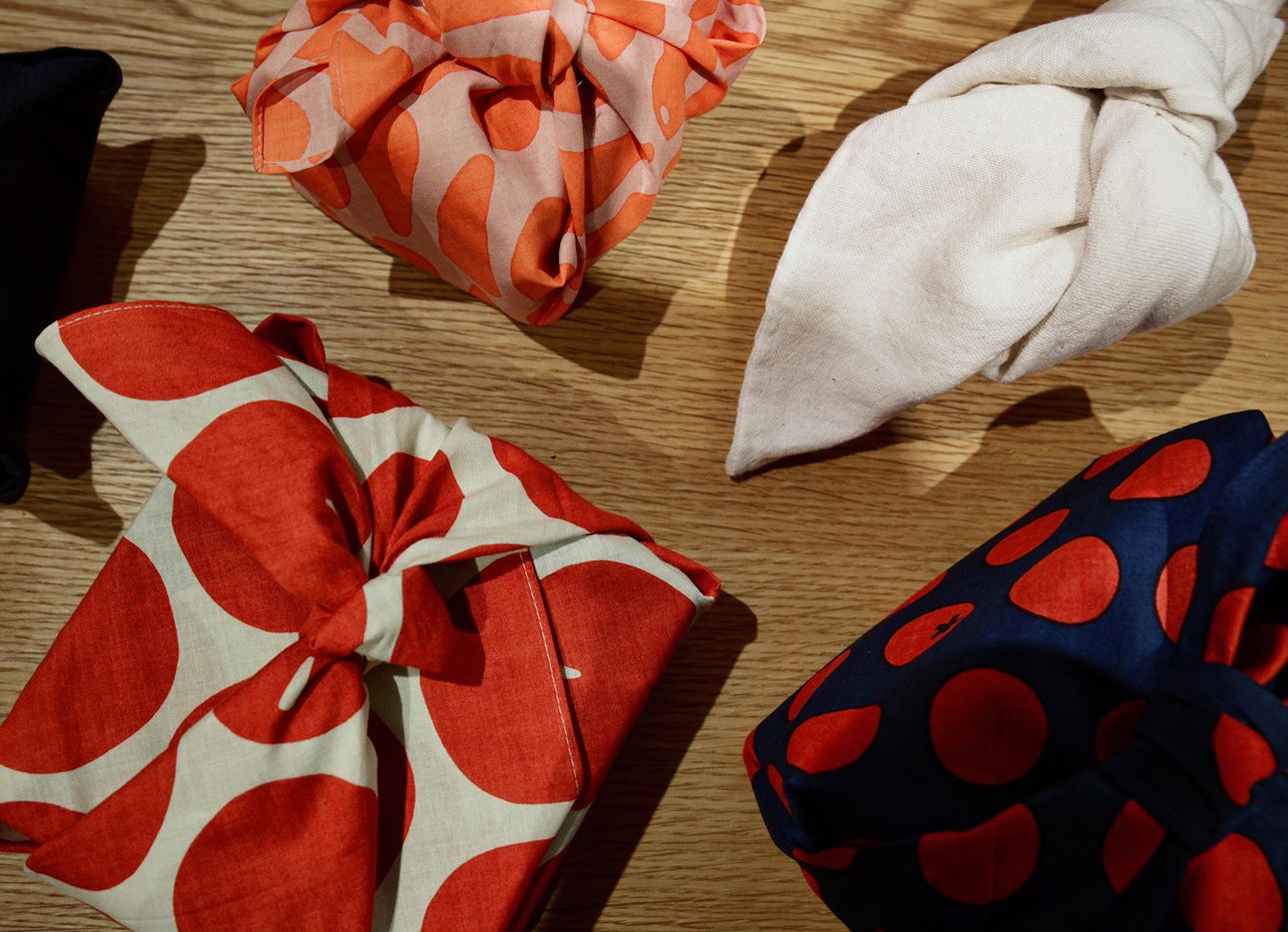
The Art of Gift Wrapping, Japanese-Style
Gift wrap can transform an everyday object to something more special and thoughtful, and nowhere else is this custom taken more delicately than in Japan, where the style of wrapping varies from item to item. “We love the emphasis on gift-wrapping in Japanese culture: It not only makes the experience of accepting the gift better, but also of giving the gift,” says Angélique J.V. Chmielewski, a frequent traveler to Japan and co-founder of the specialty home and gift shop Nalata Nalata, which stocks a curated assortment of crafted goods from all over the country. “The value of the gift is not as important as the manner of presentation. If you’re offering money, it typically is inserted into an envelope that has a decorative rice-paper cord knot on the front, called a mizuhiki. For objects, there are cloths called furoshiki that are available. They evolved from a need to wrap items for protection during transport centuries ago, and became a part of how items are offered to friends and family.”
There are many different ways to wrap items creatively with furoshiki—anything from wine bottles and ceramics to fruit and loaves of bread—and the beautiful cloths can be reused for future gifting, making it a more sustainable alternative to the standard paper and ribbon, which is sure to get ravaged and tossed after a single use. You can also wrap using tenegui, a thin cotton hand towel commonly used in Japanese kitchens, which similarly comes in a range of colors and patterns, says Chmielewski, “but we like the idea of reusing cloth you have laying around the home as well, like a linen scarf or cotton bandana.” As for the actual folding, there are plenty of online tutorials available—some more intricate and difficult to pull off than others—but don’t sweat the details too much. When it comes to gifting, it’s the thought and care that matters: “Gift-wrapping is a reflection of the amount of consideration and time the giver put into selecting the right item for the individual and is a sign of respect.”